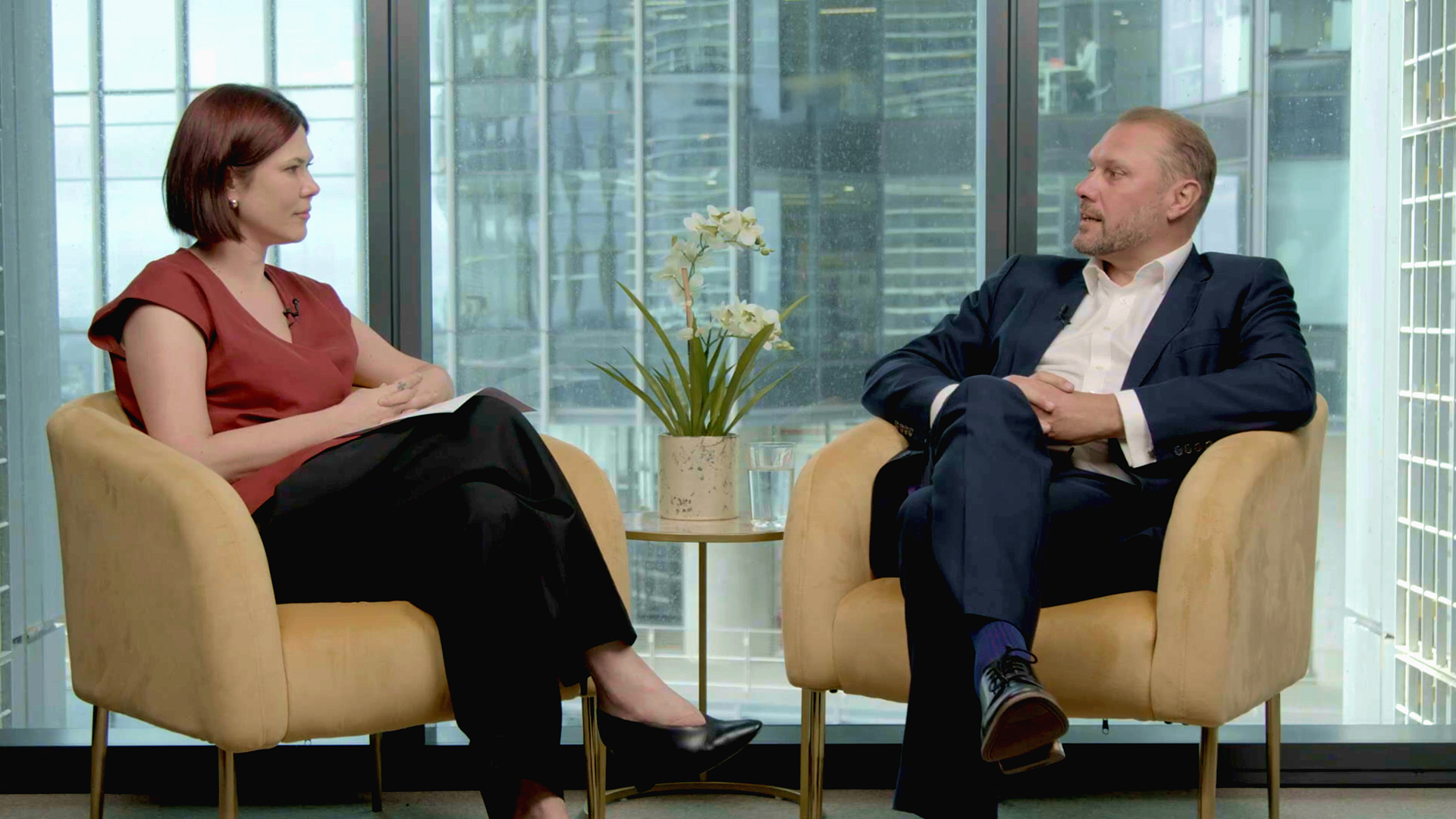He dodged Bernie Madoff - now he's backing ASIC's wake-up call for private credit
Please note, this interview was filmed Monday 27th October, 2025.
The private credit market has been one of the fastest-growing corners of finance in recent years, and murmurs about risk have become a roar with the news from the US of the collapse of auto parts supplier First Brands and car dealership Tricolour.
This, and ASIC’s recent review into the sector, have brought questions around fees, transparency and valuation to the fore.
To explain what this means for investors, I sat down with Alex Wise, Non-Executive Chair of the Trustee Board at private credit manager Keyview.
Wise, who has spent more than two decades working across due diligence in funds management, shared his perspective on where the industry stands and where it needs to lift its game.
ASIC’s message: it all hinges on execution
ASIC’s review identified three main areas of concern with implications for both retail and wholesale investors: fees, transparency, and valuation.
“I actually heard a speech from a member of ASIC a few weeks ago where they addressed this head-on, and what they said is that private credit, when done well, has great attributes to offer to the Australian market and the wider economy,” says Wise.
“But that phrase ‘when done well’ is really the key to it.”
Wise explains that ASIC’s focus isn’t about introducing sweeping new regulations, but rather ensuring managers adhere to existing standards.
While the review has sparked plenty of discussion, Wise says that many in the industry have welcomed it. “They don’t want to be tarnished and associated with some of the poorer-quality operators in the space," he says.
For high-quality managers, the review offers a chance to stand apart by showing they’re serious about governance and compliance, something Wise believes investors increasingly value.

Fees, valuations, and transparency under the microscope
Investors often don’t have a complete picture of what they’re paying for, and Wise says Keyview has tried to lead by example in this area.
“At Keyview, we’re very straightforward in terms of how we charge our fees. Anything outside of the management fee should be accrued to the fund - that’s institutional best practice in private credit,” he explains.
Valuation is another issue under the spotlight. Unlike listed markets, where prices are transparent, private assets don’t trade daily, leaving room for interpretation. “You don’t have the transparency in private markets that we have in public markets,” Wise says. “That causes a lot of concern.”
To address this, Keyview has appointed a valuation consultant to ensure its practices are robust and independent.
Then there’s transparency more broadly, particularly around portfolio holdings and potential impairments. Wise points out that some managers have been “a little bit cautious” in what they disclose, sometimes to avoid drawing attention to weaker performance. But that, he says, undermines investor confidence.
“At Keyview, we try to communicate with our investors through our reports and also through one-on-one meetings as they conduct their due diligence on us.”
Lessons from past crises
Wise’s approach to governance was shaped early in his career. He recalls his experience in London during the early 2000s, when his firm’s due diligence uncovered warning signs in funds later revealed to be linked to Bernie Madoff.
“We brought in a due diligence program that was really around doing consistent due diligence on all managers within the portfolio,” he says. “There were a number of managers who just didn’t meet the standards.”
That program ultimately led the firm to redeem from Madoff’s fund before it collapsed. “It just tripped enough red flags to know that something was off,” Wise says.
A maturing market and new opportunities
Despite the scrutiny, Wise sees plenty of upside for managers who operate with discipline and integrity.
“The recent review of private credit has created opportunities for managers who have in place good, strong governance, risk and compliance frameworks,” he says.
That focus, he believes, is key to maintaining trust with investors and ensuring alignment of interests between fund managers and their clients.
“For managers that put in place strong controls around valuation, good transparency and very straightforward fee elements, there will be great opportunities to grow their client base,” Wise says.
Investors, he adds, have grown comfortable with the risk-return profile of private credit, particularly in an environment where traditional fixed income yields remain moderate. The challenge now is ensuring that growth is built on solid foundations.
Keyview’s next phase
At Keyview, Wise says the team has made “an ongoing evolution” of its oversight and reporting structures.
“Over the past couple of years, since I’ve been involved, we’ve really beefed up our risk and compliance committee,” he explains. “We’ve given the trustee board a majority independent structure, appointed a service provider to review valuations, and onboarded a global best-in-class loan administration service to bring real integrity to the data and administration of the loans.”
Those steps, he says, are the foundation of constant vigilance and accountability.
“We’ll continue to keep advancing and making sure that governance, risk and compliance outcomes are a central and important part of what Keyview does.”
.png)
2 topics
1 fund mentioned
.jpg)
.jpg)